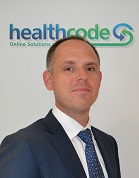 Businesses that take customer loyalty for granted are doomed to failure says Kingsley Hollis.
Businesses that take customer loyalty for granted are doomed to failure says Kingsley Hollis.
When Jamie Oliver’s Italian restaurants called in the administrators in spring 2019, commentators lined-up to give their verdict on what had gone wrong. While it was generally accepted that market conditions had got tougher for the casual dining brands, one of the most common criticisms was perhaps the most damning – in its drive for expansion, the business had lost touch with the people who mattered most.
The lesson applies to businesses across every sector, particularly in technology where the pace of change is usually quicker. It is therefore important that companies like Healthcode are mindful of our customers’ priorities and needs when developing new products and services or the outcome could be a herd of unwanted white elephants!
Healthcode surveyed 700 private practitioner customers to get an insight into what mattered most to them and what they wanted from their practice management system.
Here are some of our findings:
Ease of use is more important than breadth of functionality in a practice management system?
On a scale of 1-5 where 1 was ‘not important and 5 ‘very important’, practitioners rated ease of use most highly (average 4.61). Breadth of functionality had an average score of 3.74, suggesting that practitioners valued new system features but not for the sake of it. In short, technology had to be at the service of users and not the other way around.
Data protection is now a key consideration when choosing a practice management provider
Unsurprisingly, practitioners wanted a system provider who was capable of delivering a modern solution but they also rated ‘managed data back-up’ and ‘data security’ as important (4.31 and 4.07 respectively).
This is reassuring because practitioners are considered data controllers in law and therefore accountable to the Information Commissioner’s Office for any failure to comply with the Data Protection Act 2018. That includes having appropriate security measures in place to protect personal data and ensuring the compliance of organisations that process data on their behalf.
Electronic billing for patients was the most important feature in a new practice management system.
Electronic billing to PMIs has been common practice for years but PHIN estimates that around one in four private healthcare procedures in the UK are now self-funded (that’s around 200,000 procedures per year).1 Rather than spending precious time and money issuing paper invoices to these patients, more than 68% of practices wanted a digital solution.
The next most important feature was a mobile app which was rated as important by 41% of respondents who want to take care of business even if they are away from the office. This makes sense in the context of previous Healthcode analysis of our ePractice users which showed that a growing number of practitioners see patients at more than one treatment site2.
Invoicing is rated the most important aspect of practice management
Asked to rate five aspects of practice management from 1-5, invoicing was considered most important with an average score of 4.5, slightly higher than data security compliance (4.3). It shows that practitioners are well attuned to the demands of running a practice and the significance of maintaining a healthy cash flow position.
It contradicts the common misconception that doctors can’t also have a flair for business. In fact, in my experience, the ingrained habits of reflection and critical thinking actually give them a head start when they embark on independent practice. Indeed, most of the practitioners I meet understand the business of running a practice, prepared to learn and open to new ideas. Of course, my role is to ensure they have access to the right support and technology, from invoicing to reporting tools so they can examine the financial health of their business.
___________
The results of this survey have informed Healthcode’s product development strategy in recent months as we have focused on ensuring our services are aligned to practitioners’ needs. We will share news of these developments in the coming months.
More broadly, I think every business (including independent practices) can benefit from this kind of listening exercise, from surveys to inviting individual customers to share their experience or give anonymous feedback. Such an approach helps to highlight what is going well and any problems that need to be addressed. And it is an important way to demonstrate to customers that they are respected and valued.
References
1 Private healthcare prices becoming more transparent but further progress needed, warns PHIN, PHIN website, 9 May 2019 https://www.phin.org.uk/news/228/news-private-healthcare-prices-becoming-more
2 Multi-Site Independent Practices Need Remote Control Says Healthcode, Healthcode website, 5 May 2015 https://www.healthcode.co.uk/latest-news/multi-site-independent-practices-need-remote-control-says-healthcode
